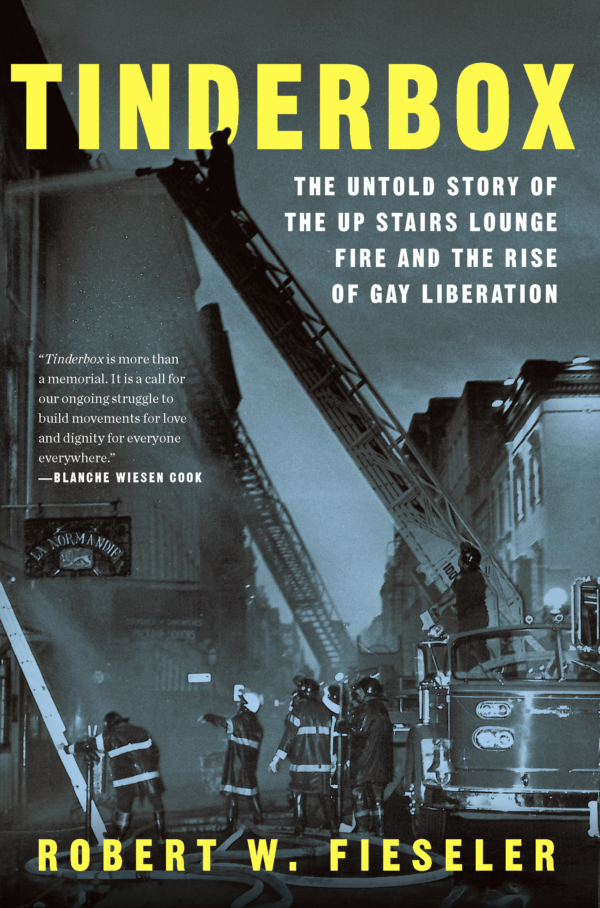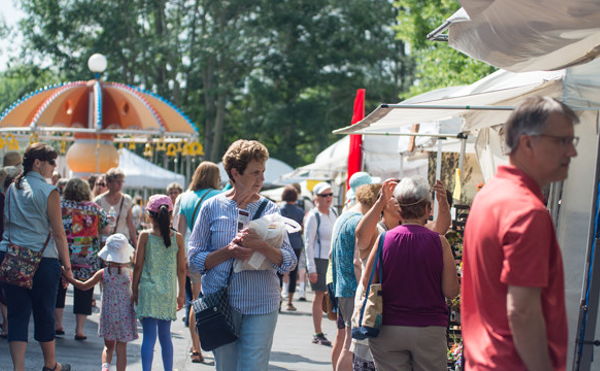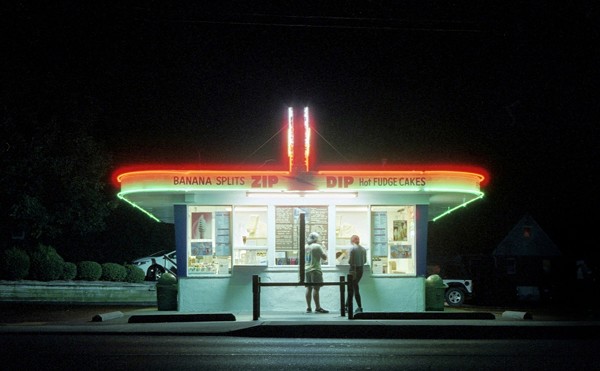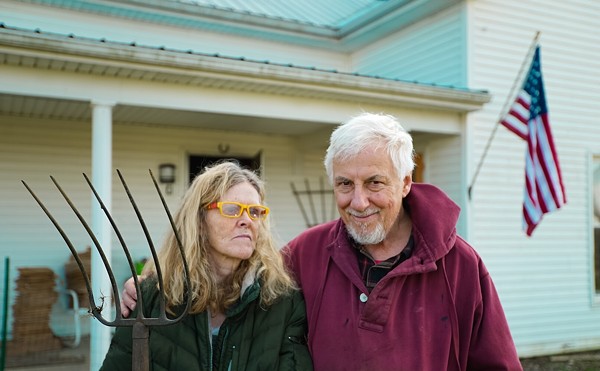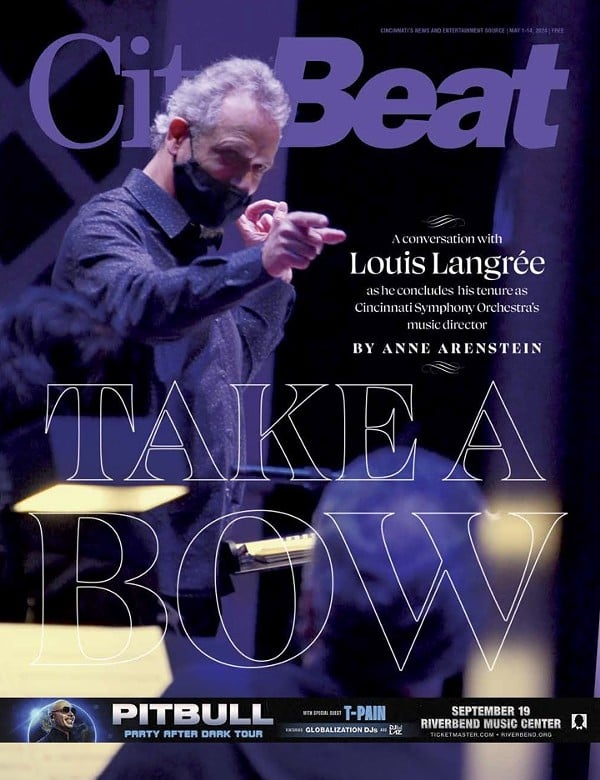Nearly half a century ago on June 24, 1973, the Up Stairs Lounge, a bar in New Orleans’ French Quarter, was set aflame, killing 31 men and one woman in what was the largest mass murder of LGBTQ people in U.S. history. That title would later be taken in 2016 by the Pulse nightclub shooting in Orlando — 49 people were murdered there.
As Robert W. Fieseler points to in his debut novel, Tinderbox: The Untold Story of the Up Stairs Lounge Fire and the Rise of Gay Liberation, the case was never solved — the prime suspect would die by suicide a year later — families were ashamed to claim the bodies of loved ones, the Catholic Church refused burial rights and news coverage in the ‘70s failed to report the anti-gay prejudice at the arson’s roots.
The story was snuffed out before it was given credence as a hate crime. Relying on extensive interviews with survivors and by scouring archives, Fieseler has woven a portrait not only of the tragedy but also of a working-class gay community that “flourished before it burned.”
Fieseler will discuss Tinderbox at 7 p.m. Tuesday, Sept. 15 with Cincy Stories’ Chris Ashwell via Crowdcast, as facilitated by downtown’s Mercantile Library. Published in 2019, Tinderbox won the Edgar Award for Best Fact Crime. Now living in New Orleans with his husband — a Cincinnati native — Fieseler was in the process of writing the book when the 2016 Pulse shooting unfolded.
“It reframed the entire way I looked at the Up Stairs Lounge fire,” Fieseler says in a recent phone interview. “Up to that point, it had been the deadliest fire on record in New Orleans history and the worst mass killing of homosexuals in U.S. history and then, suddenly, now it’s the second — a record that was never meant to be broken.
“There was this contemporary event that people were responding to with a national outpouring of grief. In the midst of all the attention that was being directed at Pulse, a bit of that light got redirected toward the Up Stairs Lounge fire in the way that it revived (the story) to consider this other mass killing as a kind of historic antecedent.”
A journalist with a focus on subculture reporting, Fieseler’s work has narrowed in on studying the marginal. A queer person who grew up as what he describes “closeted in the Midwest suburbs of Chicago,” he says he came of age in a society that didn’t allow him (and others who didn’t fit into the middle-class “dream”) a voice.
This background has informed his interest in societies that deny problems and, in turn, people’s lived experiences. The story behind Tinderbox came to Fieseler serendipitously during a conversation with a professor at Columbia Journalism School (of which Fieseler is a graduate.) A “baby reporter in the French Quarter” in ‘73, the professor knew of the deadly fire, but not much past the fact that it occurred.
Despite the lack of information, Fieseler says he quickly got bit by the story. Soon after he would learn that the criminal arson involved a gay bar, one known as a community gathering place that — as the book leaf describes — “sometimes doubled as a church, a home away from home.”
The Up Stairs Lounge, as Fieseler describes, “existed within this complex, semi-closeted society of New Orleans that had permitted queer life to exist (as long as it) remained undeclared.”
When outright declared, as evidenced by the fire and its aftermath, it would be violently repressed.
Tinderbox delves deep into the bar fire and places it into a contemporary context, rendering the lives of those killed — veterans, church leaders, dishwashers, store clerks, partners, fathers — and those who survived with warmth and humanity. Beyond the conflagration, it tells the story of a communal love that preceded and outlasted the tragedy.
Perhaps the most well-known of the victims was Rev. Bill Larson, a deacon and pastor at the New Orleans chapter of the Metropolitan Community Church, a progressive, affirming place of worship for LGBTQ and heterosexual parishioners. Born in Kentucky and raised in Hamilton, Ohio, Fieseler says that Larson's life, work and death will be a definite point of discussion at the Mercantile event.
When beginning the interviews, Fieseler said he was prepared for “complete heaviness.” But what came to light when he began to better understand the gay subculture in New Orleans and what it was like in the era of criminalization was that many of the memories weren’t of sadness.
“If they had been part of the unique Up Stairs Lounge community, oftentimes (the interviewees) would have funny stories about things that had happened in the bar,” Fieseler says. “I was witnessing, through these interactions, in many cases, amazing senses of humor that had been developed in these men as a way to repel the oppression of their time periods.
Amidst a backdrop of the deadliest fire on record in New Orleans — one that had claimed their lovers, friends — were moments of levity, laughter and tears in tandem."
For more info, visit mercantilelibrary.com. Copies of Tinderbox can be bought at Joseph-Beth Booksellers(2692 Madison Road, Rookwood).

